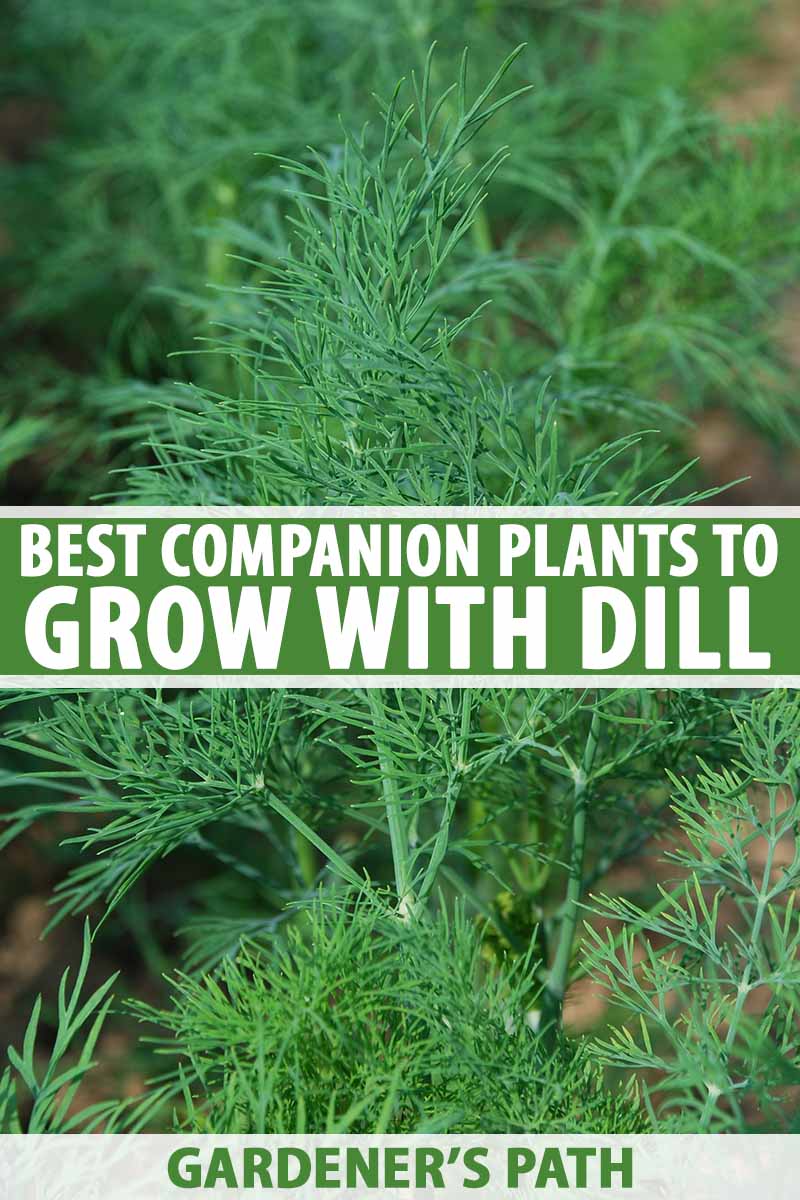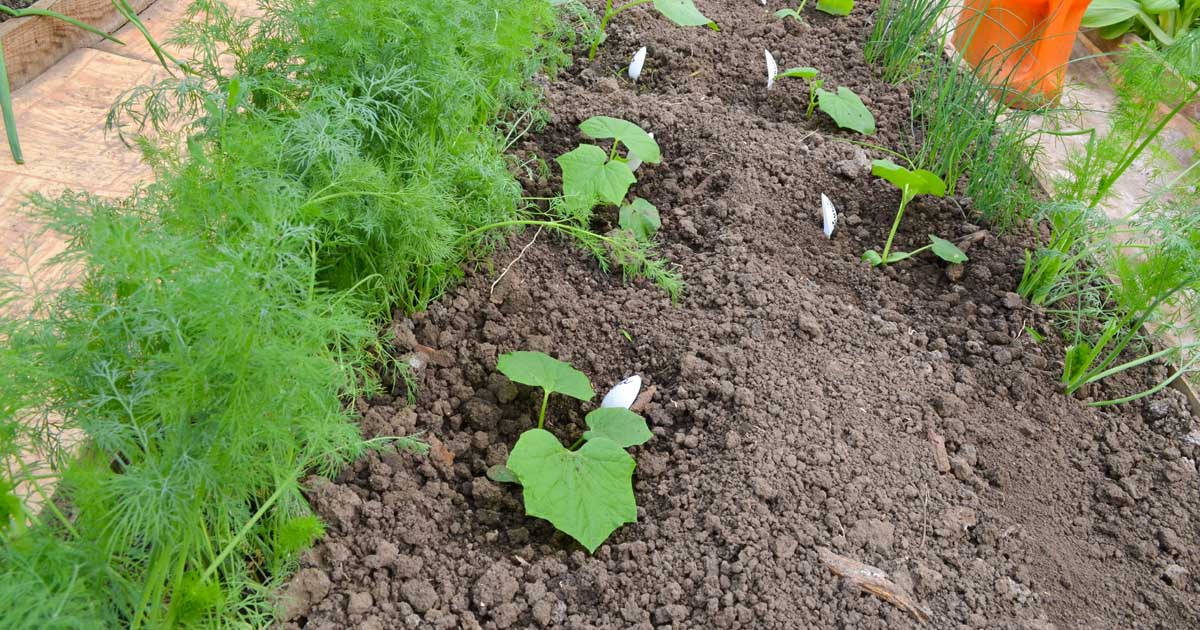Dill The Companion Plant That Does It All
Dill is a versatile herb that can be used in a variety of dishes, from salads to pickles. But did you know that dill is also a great companion plant? That's right, dill can help to attract beneficial insects, repel pests, and improve the growth of other plants in your garden.
In this blog post, we will take a closer look at the benefits of using dill as a companion plant. We will also discuss some of the best plants to pair with dill, and how to plant and care for dill in your garden.
Benefits of Using Dill as a Companion Plant
There are many benefits to using dill as a companion plant. Here are a few of the most notable:
- Attracts beneficial insects. Dill is a magnet for beneficial insects, such as ladybugs, lacewings, and parasitic wasps. These insects help to control pests, such as aphids, cabbage moths, and tomato hornworms.
- Repels pests. Dill's strong scent can help to repel pests, such as carrot flies, cabbage worms, and cucumber beetles.
- Improves the growth of other plants. Dill can help to improve the growth of other plants by attracting pollinators, such as bees and butterflies. Pollinators help to transfer pollen from one plant to another, which can lead to increased fruit and vegetable production.
- Diversifies your garden. Adding dill to your garden can help to diversify your crop selection. Dill is a cool-season herb, so it can be planted early in the spring or fall. This allows you to extend your growing season and enjoy fresh herbs all year long.
Best Plants to Pair with Dill
Dill can be paired with a variety of plants, but some of the best companions include:
- Asparagus: Dill attracts asparagus beetle parasites, which can help to control this pest.
- Carrots: Dill helps to repel carrot flies, which can damage carrot roots.
- Cucumbers: Dill attracts pollinators, which can help to improve cucumber pollination and fruit production.
- Lettuce: Dill helps to repel aphids, which can damage lettuce leaves.
- Onions: Dill and onions have similar growing requirements and can help to deter pests such as root maggots.
- Tomatoes: Dill can help to improve tomato growth and productivity by attracting pollinators. However, it is important to note that dill should not be planted too close to tomatoes, as it can inhibit their growth once it matures.
How to Plant and Care for Dill
Dill is relatively easy to plant and care for. Here are a few tips:
- Sow dill seeds directly in the garden 2-4 weeks before the last frost.
- Dill prefers full sun and well-drained soil.
- Water dill regularly, especially during hot, dry weather.
- Dill is a relatively short-lived plant, so you may need to replant it every few weeks.
- Harvest dill leaves when they are young and tender.
Conclusion
Dill is a versatile herb that can be used in a variety of dishes and is also a great companion plant. If you are looking for a way to attract beneficial insects, repel pests, and improve the growth of other plants in your garden, dill is a great option.
Dill is a delicious and versatile herb that can be used in a variety of dishes. But did you know that dill can also be a beneficial companion plant for other vegetables in your garden?
Dill attracts beneficial insects like ladybugs, hoverflies, and parasitic wasps, which help to control pests. It also helps to repel cabbage moths, cabbage loopers, and spider mites.
Some of the best companion plants for dill include:
- Asparagus
- Corn
- Cucumbers
- Onions
- Lettuce
- Brassicas (such as broccoli, cabbage, and cauliflower)
- Basil
Dill should not be planted near carrots, as it can cross-pollinate with them and produce a poor-tasting hybrid.
For more information about dill as a companion plant, please visit Gardenia Inspiration. This website has a wealth of information on companion planting, including a list of plants that are compatible with dill.
FAQ of dill as a companion plant
What are the benefits of companion planting with dill?
Dill is a great companion plant for many vegetables and herbs. It can help to:
- Attract beneficial insects, such as ladybugs and hoverflies, which can help to control pests.
- Repel harmful insects, such as aphids, cabbage moths, and tomato hornworms.
- Improve the growth and flavor of other plants.
- Provide shelter from wind and pests.
- Break up the soil and improve drainage.
What are some good companion plants for dill?
Some good companion plants for dill include:
- Asparagus
- Beans
- Brassicas (cabbage, broccoli, cauliflower, etc.)
- Corn
- Cucumbers
- Lettuce
- Marigolds
- Onions
- Peas
- Potatoes
- Spinach
- Tomatoes (but with caution)
What are some plants that should not be planted near dill?
Some plants that should not be planted near dill include:
- Angelica
- Carrots
- Fennel
- Potatoes
- Squash
How far apart should dill plants be planted?
Dill plants should be spaced about 6 inches apart. If you are planting dill in rows, the rows should be spaced about 12 inches apart.
How long does it take dill to grow?
Dill is an annual herb, which means it will only grow for one season. Dill plants typically take about 40-90 days to reach maturity.
Image of dill as a companion plant
Here are 5 images of dill as a companion plant:
- Dill and carrots: Dill helps to repel carrot flies, which are a common pest of carrots.

- Dill and tomatoes: Dill helps to attract beneficial insects, such as ladybugs, which prey on tomato pests.

- Dill and cucumbers: Dill helps to deter cucumber beetles, which are another common pest of cucumbers.

- Dill and beans: Dill helps to improve the nitrogen content of the soil, which is beneficial to beans.

- Dill and potatoes: Dill helps to repel potato beetles, which are a common pest of potatoes.

Post a Comment for "Dill The Companion Plant That Does It All"